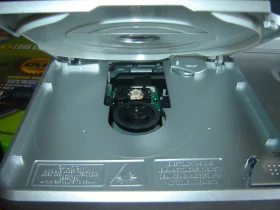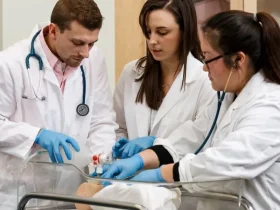CDMOs with flexible capacity and expertise were instrumental in helping vaccine and mRNA therapy developers speed up their production during the pandemic. This has shifted toward more intentional network planning, including capacity sizing and matchmaking between capabilities and pharma needs.
Regulatory Support
As mRNA-based therapeutics and vaccines continue to be explored in the lab and clinically evaluated, pharmaceutical companies seek contract development and manufacturing organizations (CDMOs) to help bring their products to market. They need partners to support them with various services, including drug substance, formulation and fill/finish work, and laboratory testing. CDMOs understand the complexities involved in developing these next-generation medicines. They are ready to provide regulatory support to their clients throughout each step of the development process, from the initial discovery phase through the clinical trial and commercialization stages. This includes helping their clients secure appropriate patents for their mRNA-based medicines and vaccines and ensuring that the relevant guidelines and regulations conduct all manufacturing activities.
Many CDMOs with mRNA expertise are increasing production capacity to meet the high demand for this service. However, some separate this capability from their existing manufacturing operations and segregate the equipment to maintain quality and security.
Expertise
The rapid success of mRNA-based vaccines and therapeutics during the pandemic has catalyzed interest in this powerful technology, which holds promise for tackling tough-to-treat diseases and improving existing therapies. It has created a demand for contract development and manufacturing (CDMO) services specializing in mRNA manufacturing and development. The most successful CDMOs offer a range of differentiated capabilities that enable them to stand out from competitors. This includes specialty technical knowledge in cell and gene therapy, mRNA and lipids, ADCs, and live biotherapeutic products. In addition, these companies often possess extensive experience in various form factors, such as sterile, topical, inhalable, dissolvable, liquid capsules, and more. Having one-stop solution providers that can handle these production challenges saves valuable time and resources for medtech innovators.
Moreover, more hands make lighter work when it comes to compliance requirements. Having CDMOs that can manage regulatory compliance and ensure quality throughout all stages of development is invaluable to medtech entrepreneurs trying to navigate stringent regulations in global markets. They can help them overcome bottlenecks and reduce overall project risk by leveraging their years of expertise, competencies, and specialization in navigating highly regulated frameworks.
Scalability
Until recently, CDMOs engaged with pharmaceutical companies on a fee-for-service or project-based contracting basis. But as the industry has evolved, some offer end-to-end services from discovery to commercialization. A one-stop solution provider can help streamline and accelerate a drug’s development process, reduce risks and costs, and increase speed to market. As a result, the CDMO sector has been on a steady growth trajectory with increased demand for new modalities, such as mRNA-based vaccines and therapies. This has driven many CDMOs to expand through strategic acquisitions. Adding new capabilities requires more than just additional equipment; it also involves unique skills and knowledge. This is why choosing a partner that has invested in the training and resources necessary for success is important. In addition, the ability to scale up production is essential. That’s why it’s helpful to work with a CDMO that has a strong track record of meeting capacity needs and can provide flexible, scalable services.
Flexibility
CDMOs that demonstrated flexibility during the pandemic will be best positioned to retain their clients when demand for manufacturing services returns to pre-pandemic levels. This flexibility will be particularly important for CDMOs focusing on advanced modalities such as mRNA vaccines, viral vectors and therapeutics. mRNA processing requires an extremely delicate balance between minimizing process steps while maintaining a high level of quality. This requires flexibility to adapt processes and systems as needed, which means having the right capacity to respond quickly to customer needs. In addition, mRNA-based therapies are typically complex and often require specialist equipment to meet regulatory requirements. A CDMO that offers end-to-end platforms for cGMP mRNA manufacture will be well-equipped to handle this demand.
Reliability
As the pandemic has taught us, there is no such thing as a “safe bet.” Reliable synthesis, purification, and packaging are key for mRNA-based vaccines and therapies. CDMOs with the right reliability and expertise in these areas can help their pharma customers deliver on the promise of these next-generation medicines. Those specializing in the higher-value/higher-demand space can also be very attractive to larger pharmaceutical companies looking to outsource specific steps along their development journey. Examples of this include cytotoxic pre-filled syringes, complex formulations and biologic APIs. However, larger CDMOs often focus on differentiation or end-to-end services for large-cap pharma, leaving less choice for smaller biotech and pharma customers who may not find them to be a good fit.
For this reason, it is important to do due diligence to ensure the CDMO you choose will be able to fulfill your needs and expectations. Then, you can focus on building a great partnership and getting your mRNA vaccine or therapy to market as quickly and reliably as possible. You can keep patients safe and improve lives with your innovation.










Hello!! My name is Annabella
I love to eat, travel, and eat some more! I am married to the man of my dreams and have a beautiful little girl whose smiles can brighten anyone’s day!